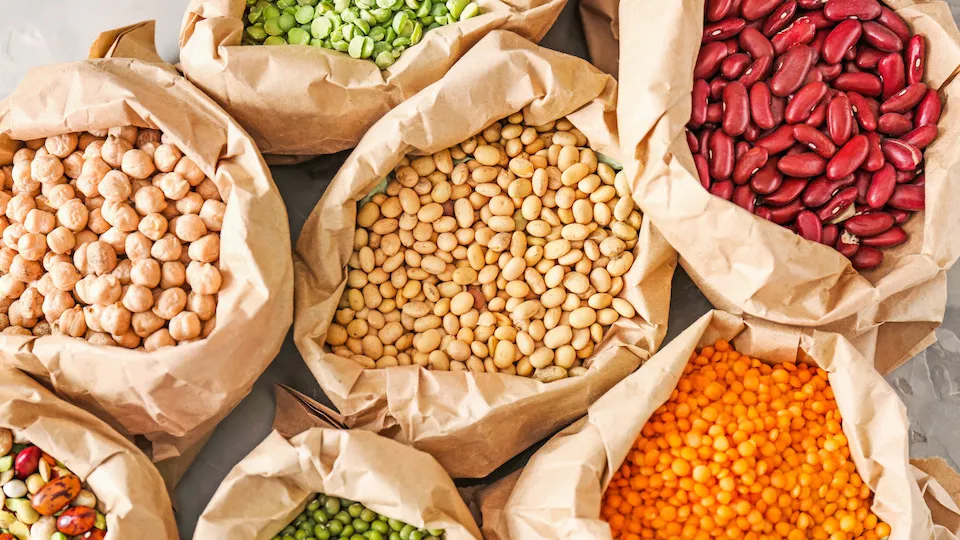Eating a high fiber diet has many advantages, including keeping your gut healthy and happy, boosting heart health, gut health, and improving weight loss efforts. The majority of Americans fail to meet the recommended daily amounts of fiber and turn to supplements to fill in the gap. However, most consumers are unaware that there are some potential health dangers associated with the consumption of these supplements. Let’s take a closer look at these.
The dietary guidelines for Americans recommend adequate daily fiber intake for adult men is 33.6 grams per day and 38 grams for women. Sadly, most people don’t even come close to this goal. The average fiber intake in America is 17 grams, and only 5 percent of people meet the adequate daily intake
Fiber supplements are lacking in essentials
One of the main drawbacks of any supplement is that it lacks vitamins, minerals, and protective antioxidants that you get when you eat high-fiber foods such as vegetables, fruits, whole grains, beans, and lentils.
Fiber supplements may interfere with the absorption of certain minerals and drugs
Fiber supplements may reduce the absorption of certain, necessary minerals and interfere with some prescription drugs, including antidepressants, cholesterol, diabetes, thyroid, and heart medications, to name a few. Be sure to speak with your physician if you are considering a fiber supplement and currently take prescription medication.
Fiber supplements may cause constipation and even bowel obstruction
According to the Cancer Treatment Centers of America, too much fiber supplement can turn what most people think is a remedy for constipation, into something very painful. If you don’t drink adequate water with a fiber supplement, the extra fiber can get stuck in the intestines causing constipation or even bowel obstruction.
Fiber supplement warning
If you are taking a fiber supplement, be sure that it has a high level of water-soluble fiber, such as psyllium. Be leary of products that contain sugar or artificial ingredients. Always, always, add fiber into your diet slowly to avoid painful gas and bloating. Talk to your physician about how much fiber is best for you and recommendations on how to meet your personal fiber goals that vary with age and gender.
You don’t actually need a fiber supplement
The good news is that you don’t need a fiber supplement at all – you can get all the necessary fiber plus loads of other benefits from eating a diet rich in high-fiber foods. These foods include fruits, vegetables, whole grains, beans, and nuts.
Here are some of the best, high-fiber foods to include in your diet.
Legumes

- Navy beans – Rich source of fiber and high in protein.
- Pinto beans – High fiber and rich source of calcium and iron.
- Black beans – High fiber, protein and a good source of iron and magnesium.
- Mung beans – Rich source of fiber along with magnesium, potassium and B6. Mung bean flour is a delicious wheat alternative.
- Lima beans – Lima beans are high in plant protein along with plenty of fiber.
- Kidney beans – Good source of fiber plus potassium.
- Baked beans – High in fiber and protein – make your own with low/no sugar.
- Soybeans – Used to make tempeh, tofu, and miso or eat raw ( edamame). Source organic and non-GMO.
- Green peas – Great source of fiber, protein, vitamins C and A.
- Lentils – There are several high fiber lentils to choose from, including French and red.
- Split peas – These legumes are full of fiber with the added bonus of plenty of magnesium and iron.
High-fiber vegetables
- Potatoes – An excellent staple veggie, potatoes are packed with fiber and also contain magnesium, and vitamin C. Sweet potatoes are a good source of fiber and vitamin A.
- Winter squash – This squash is high in fiber as well as vitamins A and C.
- Artichoke – Along with plenty of fiber, artichokes are a good source of vitamins C and K as well as folate.
- Broccoli – This cruciferous vegetable is loaded with fiber, vitamins C and A and is a great source of antioxidants.
- Parsnips – High in fiber, parsnips also contain vitamins C, K, and B’s as well as calcium and zinc.
- Pumpkin – This vegetable is rich in fiber along with vitamins A and K.
High – fiber fruit
- Apples – The skin of an apple contains the most fiber, so be sure to leave it on when you eat it. Apples also contain vitamins C, A, and folate.
- Raspberries/Blackberries – These little gems are a great source of antioxidants and also contain vitamins C and K.
- Pears – Pears contain loads of fiber as well as vitamins C, A, folate, and calcium.
- Avocados -These heart-healthy monounsaturated fatty fruits contain plenty of fiber.
- Prunes – Prunes and dried plums can promote a healthy digestive system and are high in fiber. Prunes are high in sugar, so eat in moderation.
- Oranges – This citrusy favorite is a good source of fiber and is loaded with vitamin C.
- Bananas – Bananas contain potassium, magnesium and vitamin C along with fiber.
- Guavas – Guavas are high in fiber and also a tasty source of vitamin C and vitamin A. The edible rinds make a great on-the-go snack.
Nuts and seeds
- Chia seeds- Chia seeds pack a powerful nutritional punch despite their small size. Not only are they a rich source of fiber, but they also contain omega-3 fatty acids, iron, calcium, protein, and antioxidants.
- Quinoa – This edible seed contains plenty of fiber along with magnesium, folate, vitamins B1, B2, and B6 and copper.
- Pumpkin seeds – Snacking on pumpkin seeds will give you plenty of fiber along with a healthy dose of mono and polyunsaturated fats, zinc, and magnesium.
- Buckwheat – Although it may seem like it because of its name, buckwheat is actually a seed, not a grain. This high-fiber seed is often used to make noodles or as a gluten-free baking alternative.
- Popcorn – Homemade popcorn without processed toppings is a healthy and fiber-rich snack. In addition, it contains, zinc, folate, and vitamin A.
- Almonds – These tasty, fiber-filled nuts contain healthy mono and polyunsaturated fats along with vitamin E, which acts as a powerful antioxidant.
Whole grains
- Bulgur wheat – Popular in Middle Eastern Cuisine, bulgur wheat is an excellent alternative to rice and packs a good amount of fiber in each bite.
- Pearled barley – Pearled barley makes a great side dish for stews and salads and delivers a hearty amount of fiber.
- Freekeh – Made from roasted green wheat, this fiber-rich grain adds a nutty flavor to salads.
Tips to increase your fiber intake
- Don’t peel veggie skins – A great deal of healthy fiber is contained in the skin of veggies, so go organic and avoid peeling if you can.
- Ditch the white bread – Consume wholemeal bread only, as white has no nutritional value at all.
- Brown rice is the way to go – Brown rice contains more fiber than white.
- Get in your veggies and fruit – Aim for 2 ½ cups of vegetables and 1 cup of fruit daily.
Remember, taking a fiber supplement does not make up for eating a poor diet. Do your best to eat a well-rounded diet with plenty of delicious and fiber-rich foods, and a supplement will not be necessary.
-The Alternative Daily


